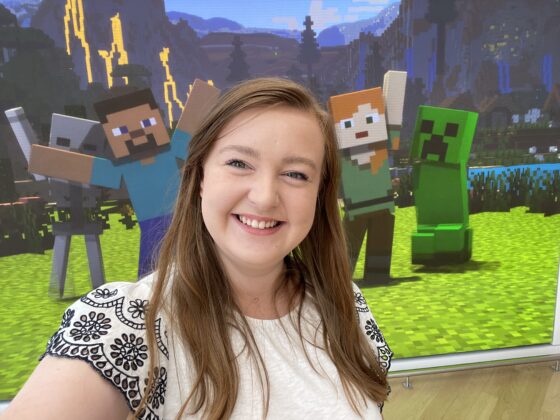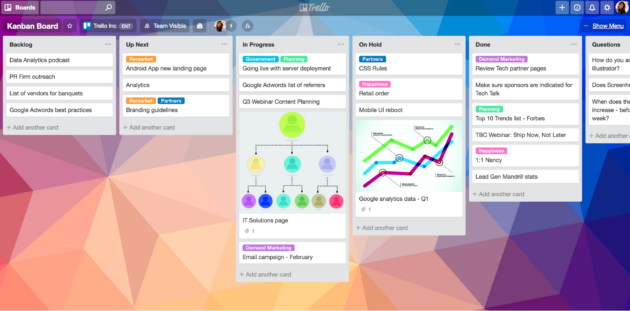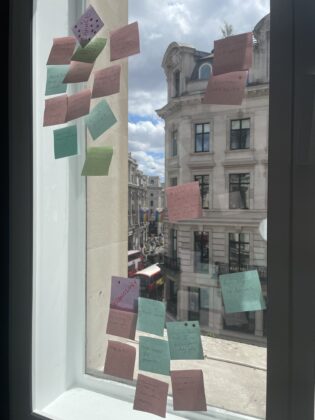Six top tips to becoming an innovation champion, from a government communications insider!

As a member of the Government Digital and Data profession for nearly five years and an enthusiast in all things digital, I was thrilled to learn that this year’s One Big Thing is all about innovation.
It’s not just an opportunity for the tech-savvy like me to geek out, it’s a chance for every civil servant, regardless of their background, to embrace new ways of thinking and working.
Building on the success of last year’s data themed programme, I’m excited to see how we can push the boundaries of innovation across the entire Civil Service.
But let’s address the elephant in the room. Time is a precious commodity in the public sector, and the idea of adding ‘innovation’ to our already overflowing plates can seem daunting. However, innovation isn’t just about cutting-edge tech or time-consuming projects; it can be about making small, impactful changes that can transform the way we work.
Throughout my career in government digital and data roles, I’ve had the privilege of implementing innovative technologies and, more importantly, helping colleagues in frontline roles adopt these changes. Now, as I apply my experience to communications, I see so many similarities in the challenges and opportunities for innovation across both professions.
So, here are my six top tips to help you and your team become innovation champions. For Civil Service colleagues, this is just in time for your Team Conversations, as part of this year’s One Big Thing programme.
1. Redefining innovation
Let’s start by demystifying the term ‘innovation’. In its Innovating with Impact strategy, the Government Communication Service (GCS) defines innovation as “doing something new that drives value within one’s local organisation or area of work”. So, take a moment to reflect, what could be new in your area? Are there processes that could be improved with existing tools? Is there a pain point in your team where a small change could help? Innovation doesn’t always require a big idea! Sometimes it’s the small changes that can spark the biggest transformations.
2. Embracing agile workflows
Now, let’s talk about the agile methodology. Don’t worry if this sounds like tech jargon, it’s simply a set of principles originally designed for software development that can be incredibly useful in our day-to-day work.
One of my favourite agile tools is the Kanban board. It’s a lifesaver for product managers, but its benefits go far beyond tech teams. It’s essentially a visual representation of your team’s workload, where tasks move from ‘To Do’ to ‘In Progress’ to ‘Done’ like a digital post-it note system! Tools like Trello or Microsoft Planner make it easy to create these boards, increasing transparency and supporting future planning.
Trust me, once you start using a Kanban board, you’ll wonder how you ever managed without it!

3. Hosting a ‘Hack Day’
Ever heard of a ‘hack day’? Also known as ‘Firebreaks’, these are dedicated periods where teams step away from their routine tasks to work on innovative projects that might not usually get attention. Why not consider hosting a hack day in your team? They could be the perfect opportunity to dust off those ideas that have been pushed to the bottom of the priority list.
4. Cross-government collaboration
Innovation thrives on diverse perspectives and we are fortunate to have so many people working across government who can offer this. Don’t be afraid to reach out beyond your immediate team – you never know where the next great idea might come from.

5. Embracing failure as a learning opportunity
This is the hardest one to engage with in my opinion: not every innovative idea will be a success. And that’s okay! In fact, it’s an essential part of the innovation process. Everybody has been in a situation where an idea you have proposed in a meeting has fallen flat – including me! Becoming comfortable with these failures is where you begin to bring your best ideas to the table.
6. Harnessing technology responsibly
While innovation isn’t all about technology, we can’t ignore the impact of emerging tech in our field. AI and data analytics are opening up new possibilities in communications. For instance, ‘Assist’ the GCS AI powered tool, is great for brainstorming ideas especially if you’re suffering from creative block. The key is to use these tools responsibly, always considering our ethical responsibilities, and if you’re unsure on where to start the GCS Framework for Ethical Innovation is a great tool to assess your early ideas.
Innovation doesn’t have to be intimidating or time-consuming. By redefining what innovation means for your team, adopting agile workflows, and carving out time for creative thinking, you can become the innovation champion your team needs.
So, here’s my challenge to you as we move into our team conversations during One Big Thing, identify one process or task in your work that frustrates you. Then, spend 30 minutes brainstorming ways to improve it. Share your ideas with a colleague (or your team) and see where it leads. You might be surprised at what you come up with together!
Remember, innovation starts with one small change. Your small innovation today could be the spark that ignites a transformation across the entire Civil Service tomorrow.
